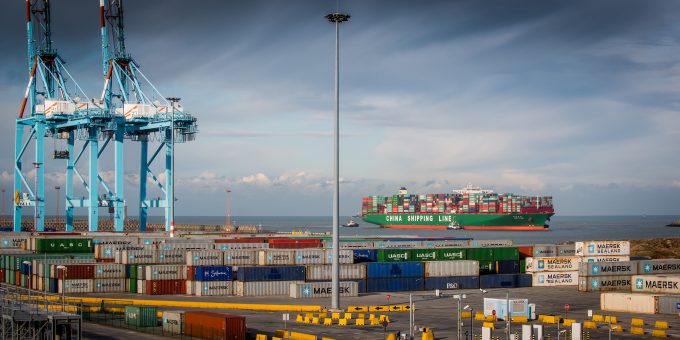'It’s healthy competition' Maersk tells forwarders bidding for same business
Maersk said the “competition is on”, when asked what the future was for forwarders in ...

Congestion at North Europe’s container ports is on the rise again, causing ocean carriers to juggle their schedules and restrict import and export operations at terminals.
Vessels are arriving at North European ports already delayed by supply chain disruptions in China, and with sanctioned Russian cargo remaining on board.
Maersk said today it was facing “critical yard density levels” at its Bremerhaven NTB terminal, adding: “This situation slows down the terminal operations, which will further delay our vessel arrival and departure schedules.
The carrier ...
Maersk Air Cargo sees volumes fall as it aims for 'margin in favour of revenue'
Keep our news independent, by supporting The Loadstar
Container spot rates diverge: to Europe still falling, but firmer to the US
Volume surge and an early peak season? 'Don't celebrate too soon,' warning
Hapag-Lloyd won't take bookings if port congestion leaves cargo stranded
Ecommerce likely the front-runner in resurge of transpacific trade after deal
China-US trade tariff pause could drive a rebound for transpacific rates
Airfreight players eye new routes as demand on the transpacific nosedives
Service chaos from trade ban with India a problem for Pakistan shippers
Airfreight rates ex-China 'loss-making', but hopes of a trade deal stay high
Indian coastal freight attracts major carriers, but regional tension disrupts
Serious threat to jobs in US logistics as tariffs cause economic 'stagflation'

Comment on this article